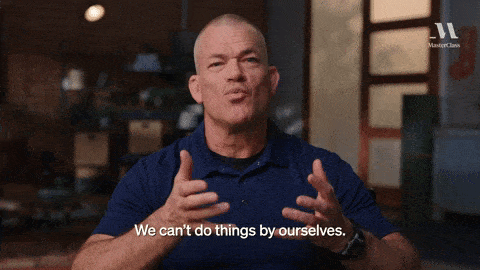Good morning 👋
This week we have a guest post from @MrFamilyOffice about family offices and how some of them are shaking up venture capital scene.
This post covers the tip of the iceberg. If you’re looking to learn more about the family office world, give him a follow on Twitter or subscribe to his weekly newsletter to start getting more content like this directly in your inbox every Friday.
Without further ado …
Here’s what VCs, startup founders, and other LPs should know about family offices.
Should VC be worried about family offices? 🤷♂️
There’s a buzz around family offices.
EY’s claim that “private family capital is larger than private equity and venture capital combined” underscores the sheer economic might wielded by family offices. According to PWC, in 2022, 32.5% of all capital invested in startups originated from family offices.
So in the fiercely competitive space where allocators vie for the best deals, should VC firms be concerned about family offices?

The conventional view of family offices is rooted in the era of legacy stewards like the Rockefellers and the Grosvenors. Traditionally focused on wealth preservation, these family offices have historically allocated only modest sums to venture capital.
But the times, they are a-changin
There are thought to be more than 10,000 single family offices in the world, most of which have been established in the last twenty years.
On top of that, existing family offices are changing: they are opening up and becoming less siloed. They're forging strategic alliances with other wealthy families, engaging in co-investments, and actively sharing resources and best practices.
And on top of that, the goals are shifting. Research by Knight Frank suggests that capital appreciation has overtaken wealth preservation as the primary goal of wealthy families.
The new breed of family offices are challenging traditional stereotypes and startups are increasingly favoring family offices over venture capital as preferred partners.
Why family offices are good for startups 💭

Let’s be frank – it’s an old cliché that family office capital is dumb capital. The cliché goes that when capital raisers have exhausted all of the other options, they knock on the door of family offices.
And while I won’t claim that there are no dumb family office allocators, relying on naïve family office capital is not a viable investment strategy.
But increasingly startups are opting for family offices as their preferred investors, and the reasoning behind this choice is compelling:
Alignment of interests – we all know that fees can warp interests in VC/PE deals. By contrast, family office returns primarily come from the success of the venture. Family offices can plausibly claim to be more aligned with startups than VC.
Long-term time horizons – time for another cliché… family office capital is patient capital. Again, there’s truth in this. Family offices are not in a rush to take cash off the table. Usually established to secure the long-term wealth of the family, family offices can focus on long-term profitability. There is no requirement to turn money over every 3-5 years. This can empower startups to focus on growth for longer.
The network effect – wealthy successful families tend to know other wealthy successful families. This means startups have access to opportunities, capital, expertise and guidance. Working with one family office almost always opens the door to many more.
Hands-on – startups often gravitate towards family offices with a proven track record in their respective fields. Beyond the financial backing, family offices can provide mentoring and support. Some family offices go above and beyond, assuming roles akin to angel investors. If the family office's wealth has originated in the same field, the hands-on involvement can be particularly impactful.
Act quickly – family office capital is patient and relationships can take years to build... but family offices can still move quickly. Ultimately, family offices are investing their own money. This means they do not need to explain their decisions or navigate layers of bureaucracy for approval – they can move with lightning pace when they need to.
But it’s not all sunshine and rainbows 🌧

Another cliché for you… if you’ve met one family office, you’ve met one family office.
That’ll be the last cliché, but again, it has a ring of truth.
Anyone can brand themselves a family office, and sometimes the label can be pretty meaningless. Consequently, the caliber of the family office investment teams can vary dramatically. The SFO Alliance – an organization for single family offices to network and share best practice – demands a minimum AUM of $400 million for members, which seems like a reasonable minimum for a serious single family office capable of effective direct investing. But even high AUM does not guarantee that the family office will be adept at direct investing.
There are two areas where family offices often fall short:
Deal flow failure – where the family office lacks the network to access top tier investment opportunities
Due diligence and evaluation failure – where the family office lacks a proficient team to scrutinize the deal, the market and the management team
Problems can arise when family offices venture into unfamiliar territory. Building wealth in one industry or sector doesn't automatically qualify you for investing, advising, and backing companies in another.
Working together 🤝

When family offices lack the capacity or network for effective direct investing, they often forge alliances with other family offices or opt for outsourcing solutions. Family offices frequently engage in direct co-investments with other families or delegate their investment activities to seasoned professionals, such as multi-family offices (MFOs). Leveraging larger teams and benefiting from economies of scale, MFOs offer family offices a comprehensive private capital investing solutions.
Clearly family offices collaborate with venture capital firms, either to source direct dealflow or to participate in VC funds. Establishing and nurturing relationships with VC firms is pivotal for many family offices. Building the relationship helps VC firms familiarize themselves with the family office's interests and risk appetite meaning they can tailor dealflow to align with the family's preferences.
When family offices choose to invest directly in VC funds, the associated costs tend to be higher, but the advantage lies in conducting due diligence only once. This means family offices can easily adjust direct investing allocations based on their evolving needs. Additionally, VC funds serve as a route for family offices to gain access to direct deals.
Should VCs be worried? 😓

The family office sector is flying. With long-term investment horizons, aligned interests with startups, and valuable networks, some have claimed that family offices will disrupt the direct investing landscape.
So should VC be worried?
I don’t think so.
Family offices are taking huge strides forward. They are becoming more professional and sophisticated, but the VC machine still maintains an edge with its networks, expertise, and processes. For now.
But VC should welcome and embrace the family office revolution. There is an opportunity for collaboration and innovation. By working with family offices, VC firms can position themselves not only at the forefront of industry evolution but also as a symbiotic partner.
It’s a generational opportunity.
The Mr Family Office Newsletter is a free weekly email delivered every Friday at lunchtime.
It covers family office news, insights, profiles, articles.
How'd we do this week?
Thanks for reading this far and giving us a little bit of your attention this week.
Feel free to unsubscribe whenever this stops becoming valuable to you.
- Clay and Tyler
P.S. We’re running our fourth annual VC comp survey.
If you work full-time in venture, growth equity, or private equity, this is a chance to let us know how you’re compensated, and we’ll let you know if you’re over / underpaid.




